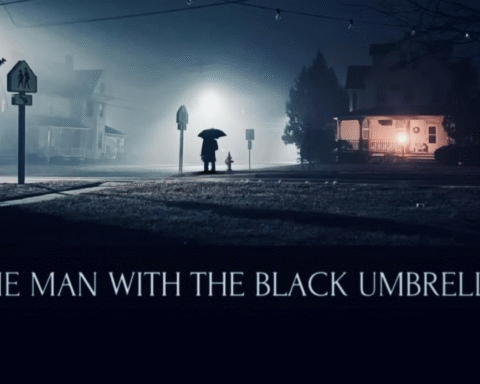Silverstein’s Antibloom serves as a compact but significant statement from the band as they approach the milestone of their 25th anniversary. The first half of their ambitious double album, this 25-minute offering is a whirlwind of post-hardcore riffs, melodic hooks, and moments of introspective vulnerability. While it’s a welcome departure from the overly glossy pop-rock tones of A Beautiful Place to Drown and Misery Made Me, Antibloom still walks the line between their gritty past and their more accessible, polished present.
Opening with the hard-hitting “Mercy Mercy,” which sets the tone with a doomsday-themed riff and biting social commentary, Silverstein demonstrates that they’re still capable of channeling urgency and aggression. This intensity is echoed in “Skin & Bones,” a heavy and emotional track that’s grounded in loss, while “I Will Destroy This” proves their ability to balance ferocity with catchiness. These tracks showcase a band that can still write anthems with hooks, especially in how they mix melody with their signature heaviness.

“Confession” stands out with its textured strings and more melodic direction, showing the band’s softer side, while “Cherry Coke” closes the album with a poignant, stripped-down reflection that reveals Silverstein’s more vulnerable songwriting. These moments of vulnerability offer a counterpoint to their heavier offerings, providing much-needed emotional depth to Antibloom.
However, not everything lands as perfectly as these highlights. “Don’t Let Me Get Too Low” feels somewhat generic, with lyrics that tread familiar emotional ground without offering fresh insight. “A Little Fight,” an interlude, is similarly saccharine and doesn’t contribute much to the album’s overall impact. Despite these missteps, Antibloom succeeds in rediscovering some of Silverstein’s best qualities—raw emotion, aggressive riffs, and a sense of sincerity that resonates beneath the surface.
Ultimately, Antibloom is a step forward for Silverstein, blending their past strengths with more contemporary, radio-friendly elements while avoiding the pitfalls that marred previous efforts. It’s not a full return to the heights of Discovering the Waterfront or This Is How the Wind Shifts, but it’s an album that proves Silverstein still have what it takes to create compelling music, even if it’s a little more polished than their old-school fans might prefer.










